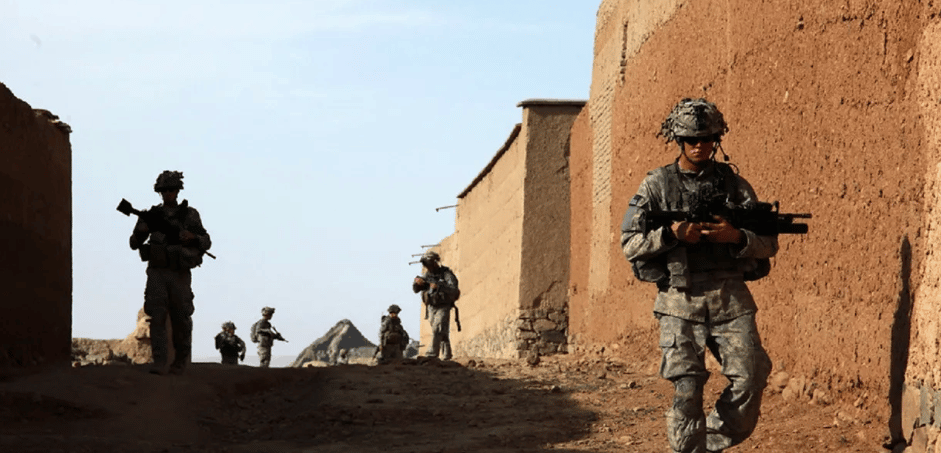The majority of U.S. military veterans say America’s most recent wars were not worth fighting, according to the results of a recent Pew Research Center survey published ahead of Veterans Day.
In addition to polling 1,087 former service members on their opinions of the wars in Iraq and Afghanistan, the Pew survey attempted to gauge differences in wartime experiences between different generations of service members, whether or not they believed the military prepared them to transition to civilian life, their opinion of the Department of Veterans Affairs, and whether they remained proud of their service, among other things.
Here are some of the key takeaways from the Pew survey:
- When it comes to the Global War on Terror, roughly two-thirds of veterans (64 percent) say they think the war in Iraq was not worth fighting in light of the “costs versus the benefits to the United States,” while 33 percent say that it was. While a majority of veterans say the same about Afghanistan, that number is slightly lower, at 58 percent.Those perspectives differ along party lines, according to the survey: “Republican and Republican-leaning veterans are much more likely than veterans who identify with or lean toward the Democratic Party to say the wars in Iraq and Afghanistan were worth fighting: 45 percent of Republican veterans vs. 15 percent of Democratic veterans say the war in Iraq was worth fighting, while 46 percent of Republican veterans and 26 percent of Democratic veterans say the same about Afghanistan.”
- When it comes to the U.S. military’s involvement in Syria, however, the views are more negative than they are positive. Among vets, some 42 percent say the campaign in Syria has been worthwhile, compared to 55 percent who say it has not. (The Pew survey was careful to note that the poll was conducted before President Donald Trump’s decision to remove U.S. troops from parts of Syria.)
- On the whole, military veterans remained proud of their service after leaving the military, with two-thirds of veterans (68 percent) saying they “frequently felt proud,” 22 percent saying they “sometimes” did, and 9 percent saying they seldom felt that way. Post-9/11 vets were more likely to say they were proud of their service than their forebears — 70 percent compared to 50 percent.
- One-in-five veterans served on active duty following the Sept. 11 terrorist attacks — and those post-9/11 veterans are more likely to have been deployed and to have served in a combat zone compared to their predecessors. According to the survey, 77 percent of post-9/11 veterans deployed at least once and 58 percent served in combat zone compared to the 58 percent of pre-9/11 veterans who deployed and 31 percent of whom served in a combat zone.
- While the vast majority of veterans say the training they received prepared them for their time in uniform (91 percent), only half (52 percent) say that the military prepared them for their transition to civilian life.
- As for veterans’ opinions of the VA, less than half (46 percent) of all respondents say the department is doing an “excellent or good job” meeting their needs, according to the survey results.Broadly speaking, 64 percent of respondents say the VA “has given them about as much help as it should have” and 30 percent say they’ve received too little help. Compared to previous generations, post-9/11 vets are more likely to say the VA has given them less help than they should have (43 percent for post-9/11 vets vs. 27 percent for previous eras.)
Reprinted from Task and Purpose.
































